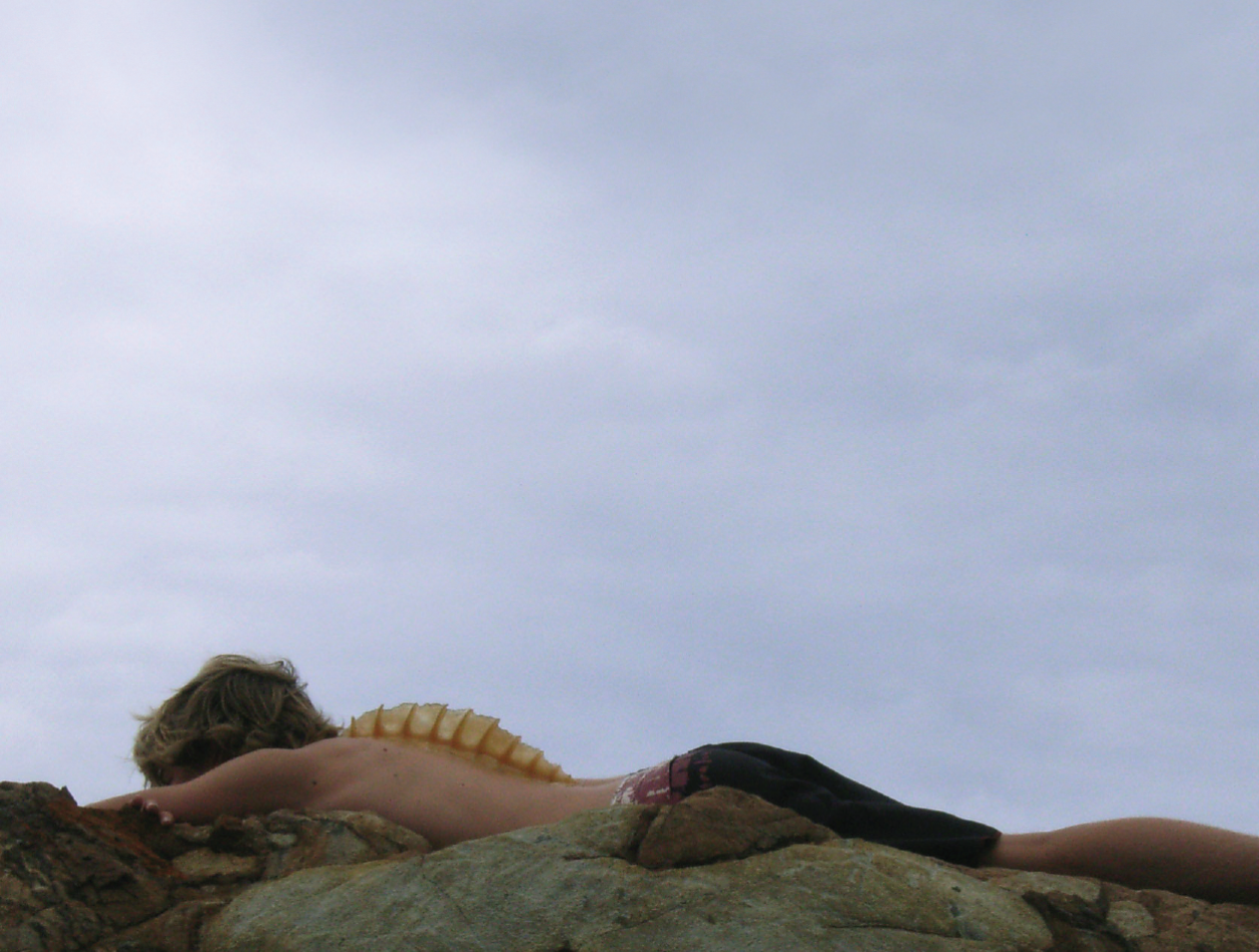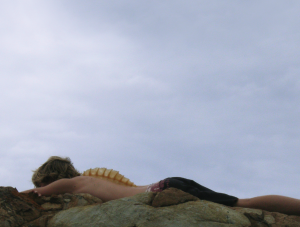In this interview with Dr Rose Michael (author of The Asking Game and The Art of Navigation), Spineless Wonders’ Harley Dark asks about the inspirations and craft behind the upcoming novella: Else. A deeply climate-conscious story, Else follows a mother and daughter’s relationship as they navigate neurodivergence, Country, and record storms at their ancestral home on the ‘Ninch’.
ROSE MICHAEL’s first novel, The Asking Game, was a runner-up for the Vogel and received an Aurealis honourable mention. An early extract from her second, The Art of Navigation, was shortlisted for a Conjure award and published in Review of Aus Fiction. She has published spec fic in Island, Griffith Review, Meanjin, Best Australian Stories and spec crit in The Conversation, Sydney Review of Books, Reading Like an Australian Writer. Experiments towards her new novel, Else – out in December with Spineless Wonders – have been published in international journals Antipodes and Speculative Nonfiction.
Access our exclusive, pre-release offer here, and watch the brand-new book trailer here!
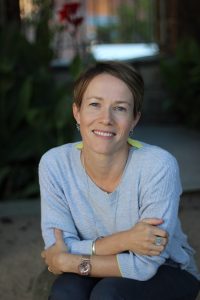
How much do you think Else was affected by having a more mature mother than many of her peers?
It’d be easy to say Else is not much affected by her mother, or anyone – any thing – for that matter. Certainly Leisl would say so! Her guilt and doubt and sense of monstrous responsibility loom large. But one of the things I explore in Else are examples of subtle, maybe unseen or unrecognised, affects: like climate change, animal migration, seasonal affective disorder. Perhaps it is Leisl’s age that means she is a different kind of mother, perhaps not. Certainly she brings considerable history to her parenting.
Were there moments when writing Leisl, figuring out what decisions she would make, that were frustrating? Do you, personally, disagree with any choices she made?
In a way, Leisl doesn’t make decisions, she is caught up in reacting – and not quickly enough for that to count as action. It was some ways into the writing that I realised I really really wanted to write hopefully. Towards hope. That was hard to reconcile with Leisl’s (anxious, paranoid, disaster-planning) perspective, so I guess the whole story is my writing towards a different position. Hopefully!
Do you think that the world is becoming a better or worse place to be neurodivergent, broadly? What was something that Else had or got to do, that you hope real neurodivergent kids get to experience?
Since, as I said, I opt for hope, I really hope this is the case!! But it’s a one-world experiment, right? One of the things I was trying to do with Else, for myself, as the mother of a neurodivergent child, was compare current practice(s), of diagnosis and early ‘intervention’, with past perspectives. Better? Worse? Surely we are moving in the right direction, but it’s by no means perfect – or fixed (in both sense of that word :). One of Else’s themes is that progress isn’t necessarily, isn’t inevitably, positive. But another aspect of the story, which gave me such pleasure to imagine, was writing a (natural) world where Else could shed what Leisl calls ‘her tics and tocks’. Sensory freedom.
What academic resources about neurodivergence were helpful during your writing process? What did you rely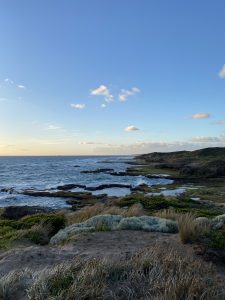 on most to inform how you wrote Else?
on most to inform how you wrote Else?
My personal experience of parenting on the spectrum has made me, more than anything, hugely aware of how some of those same behaviours are also manifest in me – and my family. That said, I did a lot of work to ensure Else’s most identifiable characteristics were not from my life or lived experience. I read widely, from memoirs and manuals, to interviews and academic articles, I channelled the maxim ‘know one autistic person, you know one autistic person’. One thing I did was list common cliches, then write scenes that went against these. Not to deny or disagree Else’s diagnosis, but to show how much more there is to her – to Leisl, to Ted – than any description modelled on deficit.
Could you point to a moment or period of time in which you learned the most about what Country means to you? How did that moment impact writing Else?
I knew early on that this book would be a love letter to my beloved back beach.I am well aware how much the environment means to me, as a human and writer: my first book was set in and inspired by the desert; the second channelled a forest. Thinking of my relation to sovereign Country, as a white immigrant – from invader stock; the direct beneficiary of theft and genocide – is not an easy position. Writing Else has been how, and when, and where I have learnt the most about what Country means to me. The question my characters pose, across generations, is very alive to me: what right do we have to feel at home? It’s not something I can easily answer in less than 80,000 words!
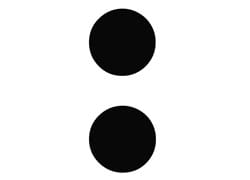
What depictions of Country have you read that have stuck with you?
I really love Bonny Cassidy’s book Monument. She writes with a poet’s perspective, letting the text hold incompatible, contradictory truths. Speculation runs through her history, which speaks to me, obviously. I love her conception of ‘us’ as guests, but I have found myself writing more towards the idea of ghosts.
How early on did you decide on a month-by-month chapter breakdown, and what made you realise it was the right choice?
Pretty much the first thing I decided, structurally, with Else, was to follow what I had found out about Indigenous seasons (from the Melbourne Museum, initially). I did fieldwork on the Ninch, observed the flora and fauna down here, as well as some basic research into animal behaviour, past and present – interviewing a couple of scientists (thanks to the Zoo!) about future predictions. Once I knew this book would be in two parts, it became a no brainer that the wombat months would have Western names, and the second section feature more descriptive titles.
Does Leisl’s reminiscence and the narrative’s weaving in and out of the present stem firstly from the character or the story’s needs?
How easily, or accurately, can we separate these things? The character’s needs, the story’s needs … my needs! The past always seems to poke through into the present, in my novels. Previously this has been memories, whether inherited memories or a literal haunting, this time I was interested in the idea of events being remembered by the landscape – by Country, maybe. I love the idea of a story moving on, in terms of present-day page-turning narrative, but moving deeper in terms of backstory.
Your prose prominently features colons–what does this mean to you on the level of the sentence, for telling this story? What would Else be without it?
I don’t know when the punctuation took its final poetic turn – that would be interesting to check through earlier drafts! The short story published in Meanjin in 2021, ‘The Ninch’, had line breaks that I tried to let go of in line with the proofreader’s advice. But I just couldn’t. It read too fast. Everything was jammed up. Luckily the typesetter – also the typesetter for Else – was forgiving! So I was already moving in that direction then, but hadn’t yet realised it. Wasn’t yet committed to it. Just knew I needed to aerate the page. The prose is so dense, claustrophobic even – intentionally – with the intense inner dialogue and word play, I needed to create space for reader – and writer! – to breathe. To pause. To take it in, yeah, but also to have a bit of a break. You’re right, Else would be a different novel without this aspect. It would be a book which didn’t, in form, enact what it was arguing for, in content.
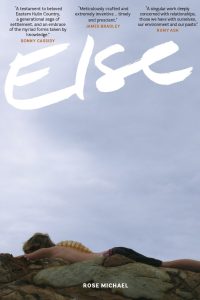 How did you begin to discover the conversational back-and-forth that Else and her mother share, in its idiosyncrasy?
How did you begin to discover the conversational back-and-forth that Else and her mother share, in its idiosyncrasy?
This question is a bit of a gift as it allows me to reference my other novels, The Asking Game (2007) and The Art of Navigation (2017). The idea of conversation as, fundamentally, weird is something I have long thought and explored in art – the name of my first novel rather gives it away! I so don’t think I’m alone! In Else I directly address dialogue as a kind of trade, something (social, contractual) that is learnt, and not at all natural. This all feels so normal, so obvious, to me that I am always a little surprised when someone else finds it artful and experimental.
Reviewers have praised the significance of Else to the current day – how do you think the narrative would have changed if you wrote it five years ago?
Well, novels take such a long time that I was writing this five years ago! In fact, I started this story before COVID, which stalled the work as we went into interminable lockdowns and homeschooling. Looking back, I see so much of that time in Else – the social isolation; the intensity of being quarantined 24/7 with other human animals; and the deep grief of being stuck in the city. The realisation of just how much I missed our beach shack! ‘Our’, ha! It really hit home to me how much that was where I belonged (rather than in my inner-urban five k radius), despite my being born overseas and the beach house originally belonging to my partner’s family.
Access our exclusive, pre-release offer here!
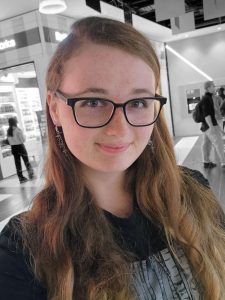
Harley Dark (she/her) is a Creative Writing and Publishing major at Swinburne University of Technology, and an editor at Other Terrain and Swine Mag. She is passionate about narratives of queer life and love, digital and traditional games, and communities of practice.
Image credit:
Front cover image by Toni Roberts.
Book design by Bettina Kaiser.
Landscape image by Tatumn Gendron.
Colon image by Vappingo.

